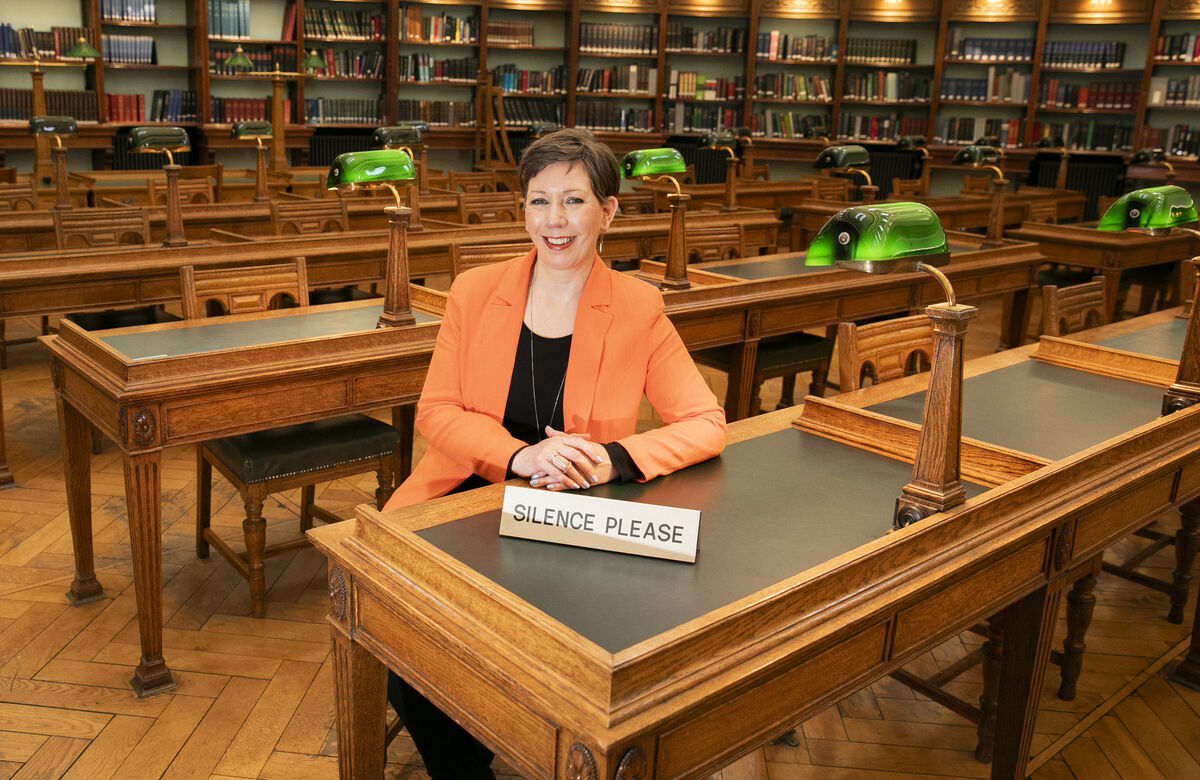Workplace Wellbeing: Surviving and thriving as an introvert at work

The modern workplace, with its noisy open-plan offices and group brainstorming sessions, seems designed with extroverts in mind. Picture: iStock
Katy Lumsden used to think there was something wrong with her. The 51-year-old is now the head of HR at the National Library of Ireland (nli.ie), but in her early 20s, when she was new to the world of work, she was asked to complete the Myers-Briggs Personality Test.
“That test helped me understand that I was an introvert and what introversion meant,” she says.
“I’d had it in my head that extroversion was the default and because I wasn’t like that, I’d assumed I was lacking in some way. Realising there was no right way to be in the world and that we’re all on a spectrum was a game-changer.”
It's easy to understand why Lumsden saw introversion as a problem. The modern workplace, with its noisy open-plan offices and group brainstorming sessions, seems designed with extroverts in mind. It’s an environment where people who like to draw attention to themselves are likely to thrive.
Research proves it. Even though up to 50% of the population are introverts, a 2019 study by the Quiet Leadership Institute in the US found that 96% of leaders self-identify as extroverts. In a separate study, 64% of workers said they believed their organisation didn’t fully harness the talents of introverted employees.
This is reflected in their earning power, as demonstrated in a 2015 UK study which showed that extroverts were 25% more likely to earn over £40,000 a year than their quieter counterparts.

Jessica Lee is a chartered organisational psychologist at jessicaleeconsulting.ie. She is keen to explain what introversion is, and what it isn’t. It’s not shyness. Nor is it a lack of self-confidence. It’s all to do with how we regain our energy.
“Extroverts recharge through social interaction while introverts recharge through solitude,” she says.
“Extroverts tend to be talkative and spontaneous while introverts are more reflective, reserved and prefer to observe and think before acting.”
This tallies with Lumsden’s understanding. “I used to think introverts didn’t like people but it’s not that,” she says. “It’s about where you go to recharge your batteries. After a stressful day, I have to go somewhere quiet by myself. It blows my mind that others might want to go to a party!”
Aoife Lenox is an introvert coach at insidestrategies.ie. She thinks the reason introverted people might be held back at work is linked to the PIE Theory created by the American management consultant Harvey Coleman.
“It suggests that success at work is dependent on 10% performance, 30% image and 60% exposure,” she says. “Being seen and heard is more valued than the more thoughtful nature of many introverts. This creates a challenge in terms of managing career success.”
What can introverts do to overcome this challenge? How can they get themselves noticed at work?
Lenox doesn’t recommend they force themselves to behave in a more extroverted fashion. “That will potentially lead to burnout,” she says.
Far better to acknowledge the strengths that come with introversion. Creativity is one. “Reflection and focussing inwards can enhance imagination,” says Lee.
“For introverts, working in solitude away from distraction can be a great way of coming up with fresh ideas.”
Their inward focus can also mean that introverts are more considered, which makes them better decision makers. And because they talk less, they tend to listen more, which helps build stronger relationships.
“People value feeling heard by those who listen carefully and respond thoughtfully,” says Lee.
However, we should beware of leaning too heavily into these strengths.
“Every strength can become a weakness if overused,” says Lenox.

For example, introverts are internal processors; they think to talk, whereas extroverts talk to think. This can lead to a tendency to hold ideas in their heads, not collaborating enough with others and ultimately having less social influence at work.
Rather than only focussing on building their strengths, Lenox thinks introverts will also benefit from stretching themselves outside their comfort zones.
This doesn’t have to mean becoming loud and outgoing.
“The behavioural specialist Vanessa Van Edwards has lots of tips to help us all develop more presence,” she says.
“Because introverts are often considered serious, smiling more can help. Nodding is a good idea too as introverts often agree only in their heads makes them appear less engaged. Asking questions is also a powerful way of showing you’re paying attention.”
Meetings provide introverts with an opportunity to make themselves visible. Yet many can feel anxious about speaking up in such a scenario. Lenox reassures us that we can all develop our public speaking skills.
“Approach it like exposure therapy,” she says. “Try it in small groups and build from there.”
Some introverts mistakenly assume that they should only speak when they have something original to say. They fail to appreciate how important it is to show you are involved in the dialogue.
Lee has advice on how to do this. “Saying something like 'I’d be interested in hearing more about…' or 'What do you mean by…?' or 'Am I right in thinking that…' shows you’re paying attention,” she says.
Some people default to self-deprecating humour to diffuse the awkwardness they feel when speaking in public. Lee cautions against doing this too much.
“Constantly putting yourself down could lead to real insecurities,” she says. “And others may take the self-criticisms you voice at face value, which will undermine your accomplishments and ability.”

She recommends assertiveness instead. “Be clear, concise and considered in getting your message across,” she says. “And remember your body language: eye contact, posture and tone can all help.”
One area where many introverts struggle is advertising their achievements. They don’t like having the spotlight shone on them. An alternative to remaining out of sight and out of mind is focusing on the contribution of their work.
Lee suggests ways to do this. “Phrases like 'I’m really happy to have been part of this achievement' or 'I’m grateful to have had the opportunity to contribute in this way' draw attention to your accomplishments while also highlighting the overall success and larger goals of your organisation and team,” she explains.
It's also worth remembering that there are forms of communication other than face-to-face interactions. This can be especially helpful when you’re asked on-the-spot questions.
“You don’t always have to respond in the moment,” says Lee. “You could say you’d like time to think and arrange a follow-up chat or email to discuss it further.”
It may be easier for some introverts to communicate and highlight their achievements online. “Social media and LinkedIn is a great place to tell your story,” says Lee.
Lumsden has developed tactics that have allowed her to thrive in the workplace. “I know that I don’t like small talk with a group of people I don’t know,” she says. “But I’ve learned that people like it when you ask them questions so I make a conscious effort to do that. I’m also very noisy online, where I’ve built great relationships on social media.”
As head of HR, she takes care to ensure that extroversion bias doesn’t prevail in her organisation.
“I keep an eye on things like role profiling and job descriptions so that there aren’t any implicit expectations of what a particular candidate looks like or what a specific job requires,” she says.
Lee thinks that all organisations would benefit from supporting introverts just as much as extroverts. “Embracing diverse styles and perspectives strengthens teams and the first step towards that is embracing difference,” she says.
Ultimately, Lenox believes the responsibility for inclusion lies with us all. “It’s a balance between organisations designing work to be inclusive so that everyone has equal opportunity to contribute and be recognised in ways that align with their natural temperament and individuals to have the self-awareness of where we can contribute and where we might need to stretch ourselves,” she says.
- The National Library of Ireland (NLI), Dublin, is the library of record for Ireland. It cares for more than 12 million items, including books, manuscripts, newspapers, photographs, maps, music, and digital media. The NLI is free of charge to all. Further information is available at nli.ie.










